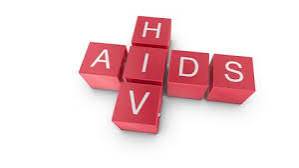The Alarming Rise of HIV/AIDS in Ghana: A Call to Action
In recent years, Ghana has been facing a concerning uptick in HIV/AIDS cases, raising alarm bells among health authorities and the general population. Despite progress in raising awareness and increasing access to treatment, the prevalence of HIV/AIDS in Ghana has been steadily rising, indicating a critical need for intensified efforts to combat the spread of the virus.
One of the key factors contributing to the surge in HIV/AIDS cases in Ghana is the lack of comprehensive sex education and awareness about safe sex practices. Misconceptions, stigma, and cultural taboos surrounding HIV/AIDS often hinder open discussions about prevention methods, leading to risky behaviors and a higher likelihood of transmission.
Furthermore, limited access to healthcare services and testing facilities in rural areas has posed a significant challenge in early detection and treatment of HIV/AIDS. Many people living with the virus are unaware of their status, inadvertently spreading the disease to their partners and communities.
The ongoing COVID-19 pandemic has also exacerbated the situation, diverting attention and resources away from existing HIV/AIDS programs and interventions. Lockdowns and restrictions have disrupted essential healthcare services, making it harder for individuals to seek testing and treatment for HIV/AIDS.
To address the rising tide of HIV/AIDS in Ghana, urgent action is needed on multiple fronts. Government agencies, non-profit organizations, healthcare providers, and communities must work together to implement robust prevention strategies, increase access to testing and treatment services, and combat stigma and discrimination associated with the virus.
Education campaigns targeting schools, workplaces, and local communities can help dispel myths and misconceptions about HIV/AIDS, promoting safe sex practices and encouraging regular testing. Additionally, improving healthcare infrastructure in rural areas and scaling up outreach programs can ensure that more people have access to life-saving treatment and support services.
In conclusion, the current rise of HIV/AIDS in Ghana is a pressing public health issue that demands immediate attention and concerted efforts from all stakeholders. By prioritizing prevention, testing, and treatment, we can stem the tide of new infections and work towards a future where HIV/AIDS no longer poses a threat to the well-being of Ghanaians.



No comments yet
Be the first to share your thoughts!